Today we are going to talk about two leading companies on the air purifier market, Dyson and Rabbit. Dyson has more models in the lineup and also includes some that are not only cooling and purifying but also hearing the air. Rabbit allows customizing the filter. Let's talk about the difference between the two.
Filtration system
Filtration is important if you are too sensitive to dust or pollens. Both manufacturers produce premium purifiers. The Rabbit's cheapest model costs more than the Dyson's most budget purifier.
Besides, the Dyson has the HP series that not only purifies and cools the air but also heats it.
The Rabiit purifiers have a 5-stage filtration system; the Dyson uses two filters only
The Dyson uses two filters while the Rabbit purifiers have a 4 or 5-stage filtration system depending on a model.
When comparing the filtration system of both you can say that the Rabbit models can be customized depending on your needs while the Dyson come with the same filters.
Because of customization, the Rabbit purifiers are more suitable for specific needs and are better for people very sensitive to dust, gasses, odors, etc.
How does the Dyson's filtration work?
The Dyson uses two main filters that work together to effectively purify the air. The filter set includes:
- HEPA filter
- activated carbon filter
Older models are equipped with a HEPA filter only.
How does it work?
Untreated air is sucked in from the base of the purifier, processed through the filters (Glass HEPA filter and an activated carbon filter), and then redistributed into the room with the help of the radial amp.
The HEPA filter gets rid of the smallest particles, pollens, and allergens.
The Activated carbon filter removes indoor gasses and odors.
How does the Rabbit's filtration work?
The most important criteria to decide one air purifier’s power is through how many filters it has and the air filter types are used. Rabbit uses the following filter types:
- pre-filter
- medium filter
- advanced BioGS HEPA filter
- customized filter
- activated carbon filter
Pre-filter is washable and permanent. The polluted air must pass through a pre-filter, there it will capture all large particles, along with dust mites and some of pet hair.
Medium filter traps large pollen, pet dander, mold, and dust particles that are small enough to bypass the Pre-filter.
Advanced BioGS HEPA filter. It is a True HEPA filter that captures 99.97% of down to 0.3 microns allergens, virus particles, pollen, mold, and fungi particles. Rabbit Air advances their air filter process, therefore prolong optimal filter efficiency and filter life of their HEPA Filter.
Customized filter to help you can customize the product and choose from a variety of customized filters including Germ Defense, Pet Allergy, Odor Remover, or Toxin Absorber.
Activated carbon filter eliminates odors, smokes, and chemical vapors.
The air purifier could rival Rabbit Air MinusA2 in terms of the number of physical air filters is minor, with only Austin Air HealthMate Plus.
To perfect the air filtration process, Rabbit Air invented a Customized Filter. You can tailor this air filter to fit your needs, from Germ Defense, Pet Allergy, Odor Remover, or Toxin Absorber.
The last but not least, Rabbit Air makes use of an Ion Generator. It will stay as the last line of defense to trap any tiny pollutant particles back to the physical filters.
Model lineup Dyson and Rabbit includes
Dyson air purifier lineup
- Pure Cool BP01
- Pur Hot+Cool HP01/HP02/HP04/HP06
- Pure Cool TP01/TP02/TP04
- Pure Cool DP04
- Pure Cool Link Desk
Rabbit air purifier lineup
The BIOGS 2.0 SPA-625A is similar to the BIOGS 2.0 SPA-550A, it only covers a bigger area per hour. Same goes to the MINUSA2 SPA-780A. It covers a bigger area. There is also the SPA-780N that is WiFi-enabled.
Features Dyson purifiers have
Depending on a Dyson model, it has more or less features. The list includes:
- Up to 350-degree oscillation
- High-speed fan (10 settings)
- Pollution sensing and reporting
- WiFi and App for monitoring and controlling the unit
- Backward airflow mode
- Nighttime dim display
- Remote controller
- Alexa & Smart Home integration
- Focused airflow for personal cooling
- Sleep timer from 15 minutes to 9 hours
- Space heater for warmth
- Fan for cooling
- Nighttime Mode
- Most of the models are bladeless and are safe for everyone & easy to clean
The company has developed additional features for the models, and the most interesting is indeed the ability to heat air and humidifying. The machine is capable of increasing the room temperature to as high as 37 degrees Celsius and keep on maintaining the same temperature for as long as you need. But the outer body doesn't get too hot to touch. Air flows in such a way that an entire room is heated evenly.
Even at its highest speed, noise is not an issue — something the company says is a key feature of all Dyson products. And the device's Auto mode automatically adjusts the fan speed to either meet the target temperature level or just purify the air.
Along with the Auto mode, some purifiers have a Night mode that dims the LCD panel and reduces the fan speed so you can sleep comfortably. There is also a timer to let you select for how long you want the machine to purify the air in your room.
The LCD panel shows live air quality and temperature reports by default. There's an ambient light sensor to adjust the display brightness as per the lighting conditions of the room. You can also check the filter's wear level and the Wi-Fi connectivity status directly from the LCD panel. Alternatively, you can use the Dyson Link app on your Android or iOS device to see live air quality and temperature reports via Wi-Fi. The app also shows the temperature, air quality, and humidity in your city.
The older models lack Auto mode, heating (only presented in one model), Wi-Fi connectivity, carbon filter, etc.
Features the Rabbit purifiers have
Rabbit Air is one of the leaders in the air purifier industry since 2004. The list of features includes:
- Smart sensor
- Light sensor
- LED mood lights
- Wi-Fi function
- Customizable filter
- LED life indicator
- Silent sleep mode
- Automatic mode
- 5 fan speeds
The Smart Sensor adjusts the fan speed automatically based on air quality in your room. With this technology, your air purifier will be more energy-efficient.
With a light sensor, the purifier will automatically transition to sleep mode in a dark room. If you need some source of light in the dark, Rabbit Air MinusA2 will also provide a series of LED mood lights on the front panel.
To control this Rabbit purifier, you don't need a remote control. Instead, you can use Wi-Fi. With the app, you can control your Rabbit purifier from anywhere and anytime.
Also, you don’t need to remember the date to replace your air filters. Rabbit Air has a LED life indicator to remind you.
The difference between each
- Design. The Dyson has a bladeless roundish design. The Rabbit design is modern too.
- Cooler, heater, and purifier in the Dyson lineup.
- Rabbit Air has an ionizer.
- Coverage. Some Dyson purifiers are better to use in small rooms.
- The Rabbit model can be hanging on the wall.
- The Dyson can work as a fan too.
- Dyson has more models that are Alexa and Google compatible & are WiFi-enabled.
The Dyson is entirely different in design and aesthetic, it has a small, ventilated base. The Rabbit Air is square, white, and more traditional looking. The Dyson models act as a cooler and a heater (the HP series only) as well as an air purifier, the Rabbit Air does not, it is just an air purifier.
The Dyson is overall a more modern, sophisticated machine in design and technology. But the Dyson does not have an ionizer, and the Rabbit Air has an ionizer.
They are similar in price, the Rabbit Air perhaps a fraction more expensive, but not much.
Dyson's latest models are WiFi-enabled and can be integrated with Alexa and Google Home. The Rabbit only has one such model.
With the Rabbit, you can customize a filter depending on what you want to archive with the purifier. The Dyson comes with a HEPA and Activated carbon filters.
Dyson HP04 vs. Rabbit Air Minusa2
RabbitAir MinusA2 SPA-780N
WiFi-enabled
Room coverage up to 815 sq. ft. Can be stored on a wall.
$619.95 on AmazonThe SPA-780N has a different design and can be added as a design detail to your room by hanging on a wall.
It lets you customize a filter type and has a 6-stage filtration system.
The light sensor automatically shuts the lights when it's getting darker in the room. The filters last up to 2 years.
Dyson HP04
Cooling, heating and purifying
Shows an air quality report. Has a bladeless design, safe for everyone.
$699.99 on AmazonThe Dyson HP04 is one of the Dyson Pure Hot+Cool lineups, and it grants two more functions besides the core air purifier nature. First is the cooling mode, with 10 different fan speeds to change, it can deliver a powerful stream of purified airflow to cool you. Second is the heating mode, which projects purified heat and saves you for the whole long winter season.
With three intelligent sensors, it automatically detects particles and gases in your room, then diagnoses and reports them on the LCD screen. It oscillates up to 350 degrees.
Able to maintain the same temperature in the room.
The difference between the two
| Difference/Models | Dyson HP04 | Rabbit SPA-780N |
| Filtration | 2 filters (HEPA+carbon) | 5 filters + ionizer |
| Airflow | 310 | 218 |
| Noise level | 64 | 51 |
| Oscillation | 350 | no |
| Fan speed | 10 | 5 |
| Room coverage | 290 | 815 |
| Weight | 8.9 | 8.8 |
| Warranty | 12 | 60 |
*Both purifiers are suitable for gibber rooms but only need more time to cover a bigger area
Dyson TP04 vs Rabbit SPA-550A
Dyson Pure Cool TP04
For big spaces
Real-time air quality feedback helps to know when it’s time to bump up the fan speed.
$499.99 on AmazonOnly in the fourth generation of Dyson air purifiers do have the LCD display, which is located above the air intake grill. The display is mainly for representing a high-end model, where reports any changes in temperature, humidity level, and air quality information.
The Dyson TP04 features are also similar to any high-end flagships of this company, like the Dyson HP04.
The oscillation setting is improved from 70° up to 350°. The fourth generation of Dyson air purifiers also introduces the new Diffuse Mode, to reverse the airflow, rather than cooling you in the front.
The remote control is made curved to store neatly on top of the machine, as it is magnetic. Moreover, you can also use the Dyson Link app or Alexa to control your air purifier. The app will also help you schedule your Dyson TP04.
RabbitAir BioGS 2.0 (SPA-550A)
Wide 550 sq m purifying coverage.
Sleek, modern design and considerably compact for a high-end console unit.
$369.95 on AmazonRabbit Air BioGS 2.0 is a vital device that will almost certainly shape the design of the iconic series going forward. It ditches the tired design of the previous BioGS Model and brings in a new modern look.
The lack of some buttons sees big changes to the way in which Rabbit Air BioGS 2.0 operates. Now the device’s operating system is only controlled pretty much via a single button, making it is harder to make acquaintance with. Most importantly, you can still use the remote control to help you better navigate through the functions of Rabbit Air BioGS 2.0.
Rabbit Air BioGS 2.0 adds an idle mode for conserving energy much better. When you don’t need it, this air purifier will automatically dim the light.
Also, you don’t need to remember the date to replace your air filters because Rabbit Air BioGS 2.0 has a LED life indicator to remind you.
| Differences/Models | Dyson TP04 | Rabbit SPA-550A |
| Cooling | yes | no |
| Fan speed | 10 | 5 |
| Filtration | 2 filters (HEPA+activated charcoal) | 4 filters |
| Airflow | 95.3 | 147 |
| Oscillation | 350 | no |
| WiFi | yes | no |
| Weight | 5 | 7.6 |
| Price | $499.99 | $369.95 |
To conclude
Both Dyson and Rabbit are cool and do the job really good. Those are premium machines, each has its advantages.
The Rabbit purifiers can be customized with filters for specific needs and are probably better for people very sensitive to dust and odors. Also the latest models can be hanged on a wall and do not take lots of space.
The Dyson models have a more unique design and have more features. Also, most of them are Alexa & Google Home compatible. The HP series work as a fan, purifier and a heater while the Rabbits only purify the air.
Depending on your preference and needs is up to you which purifier to get, a Dyson or Rabbit. You will not go wrong with either.
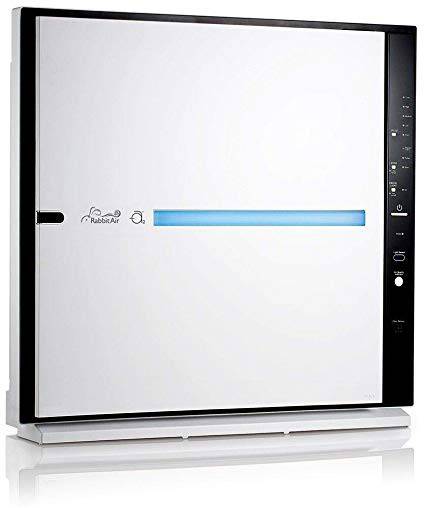
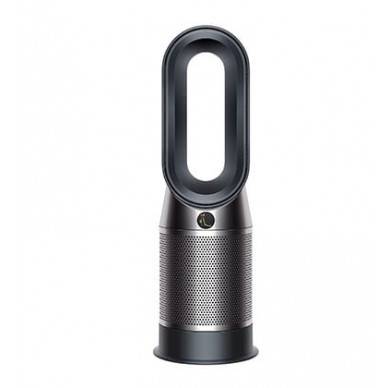
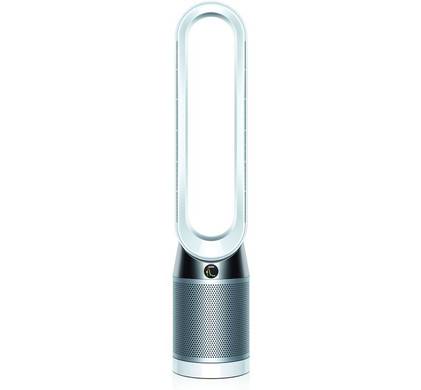
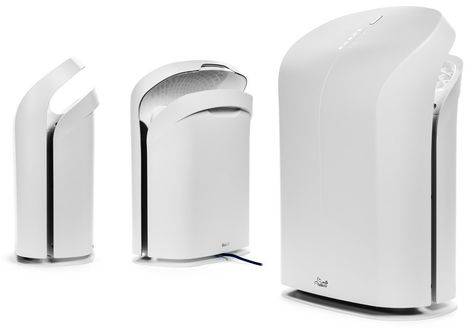
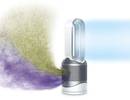
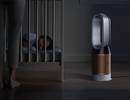


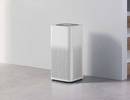
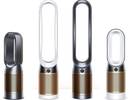
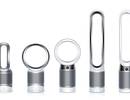
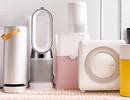
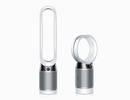
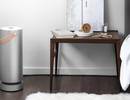
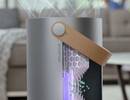
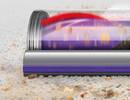
Comments: 0